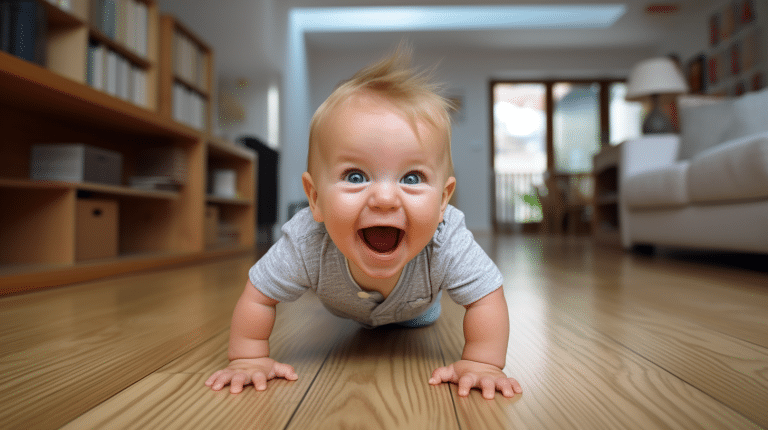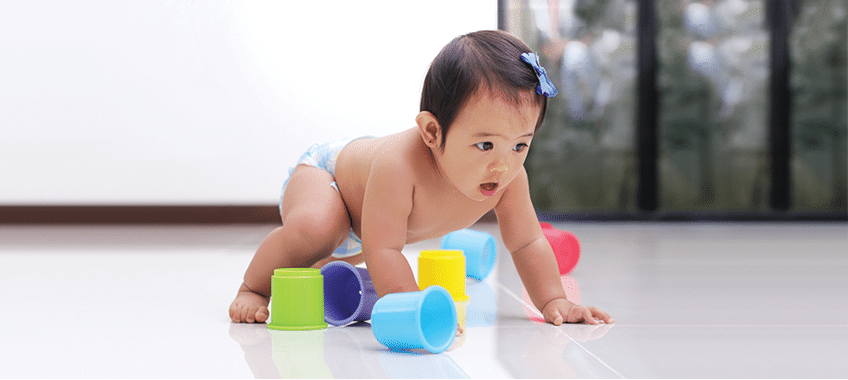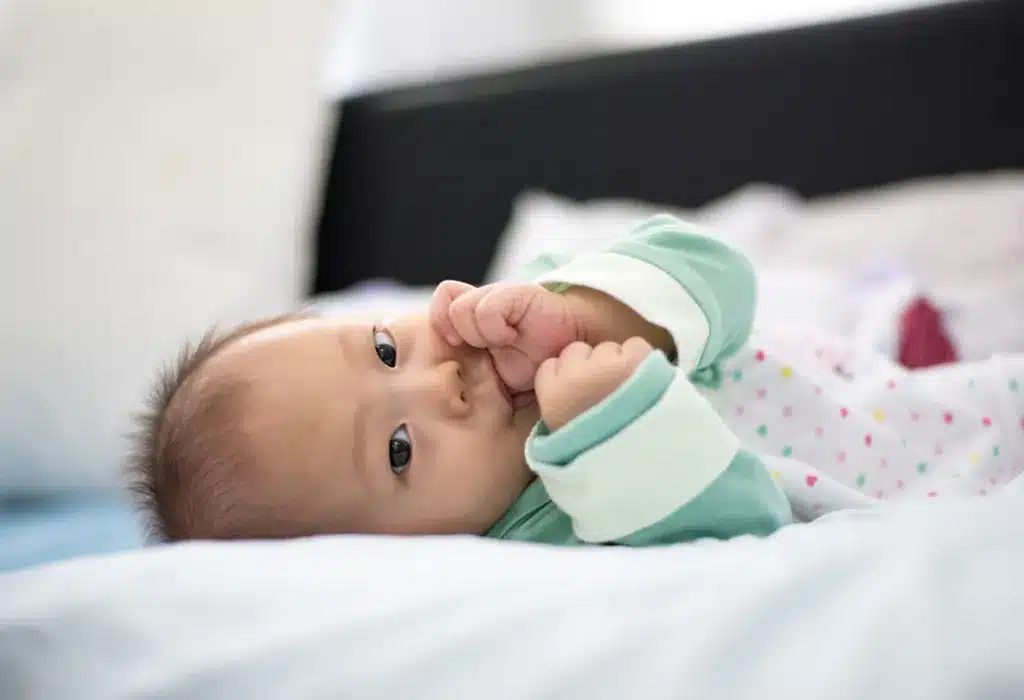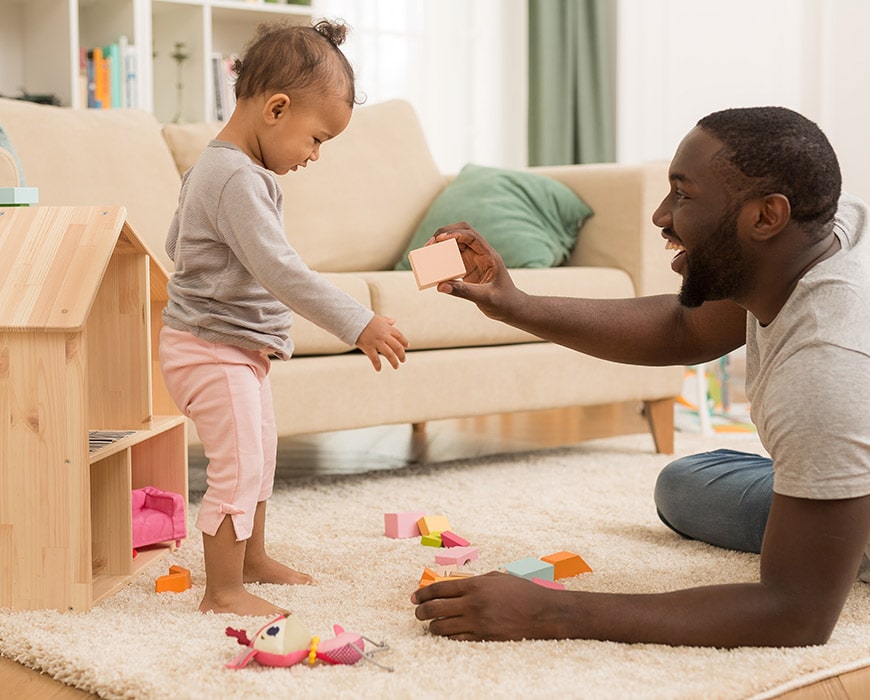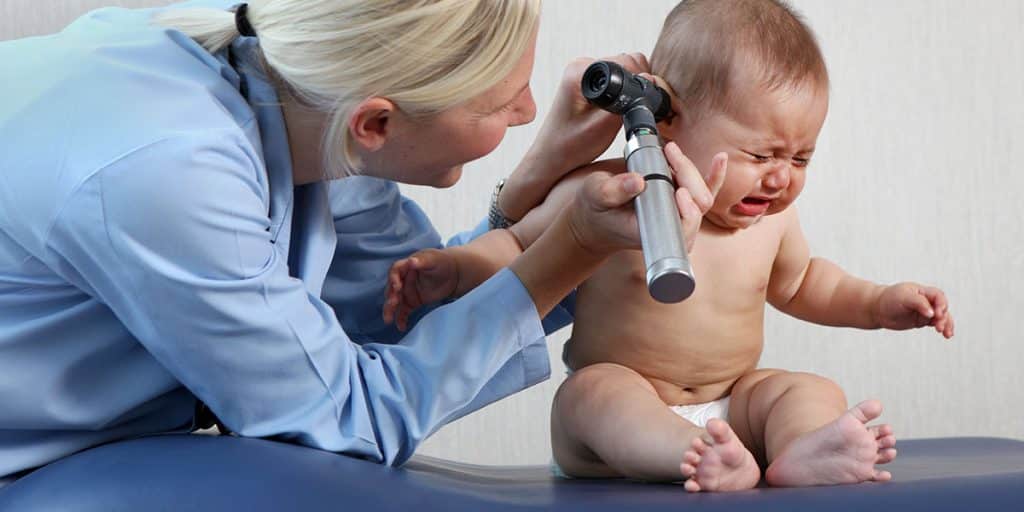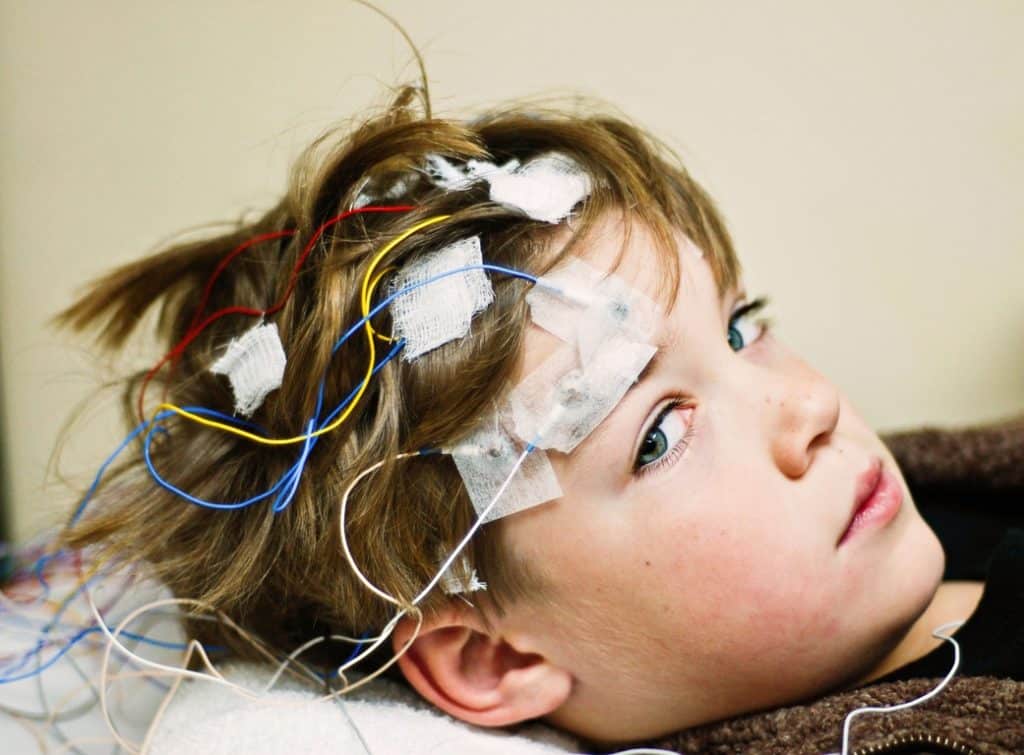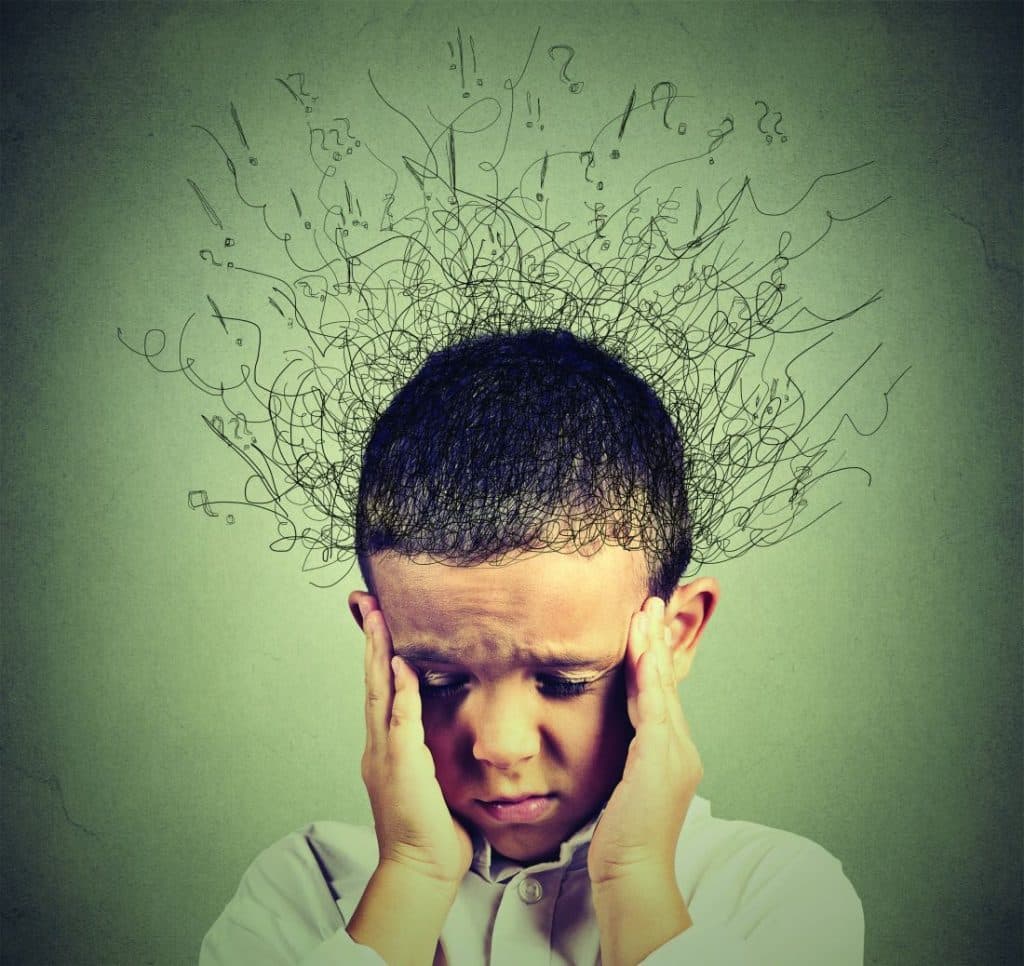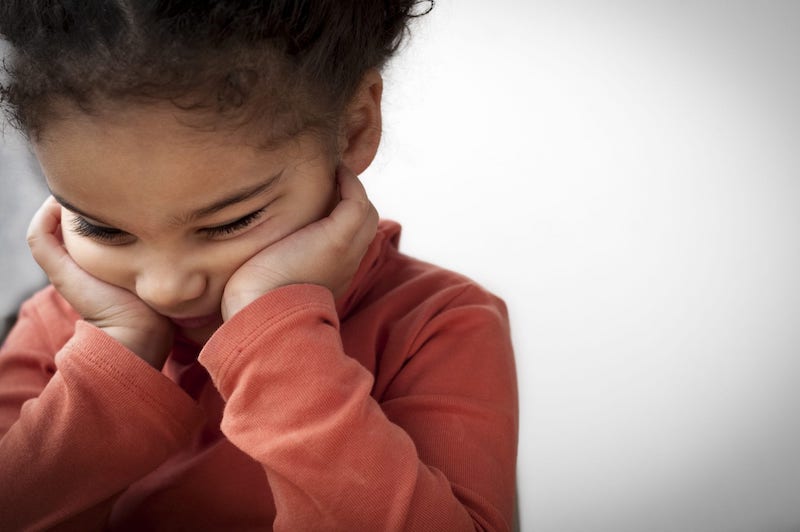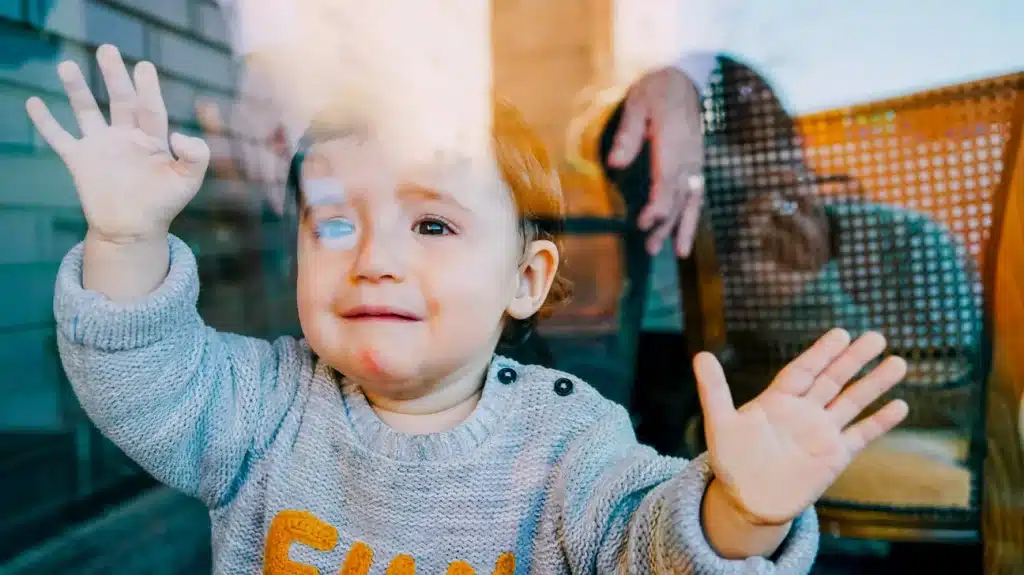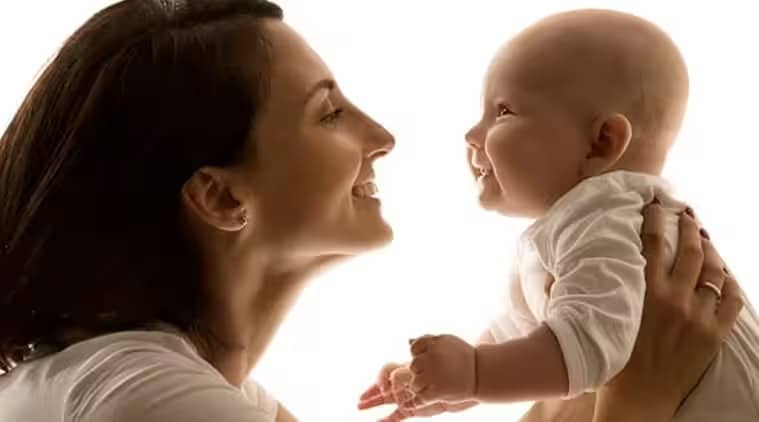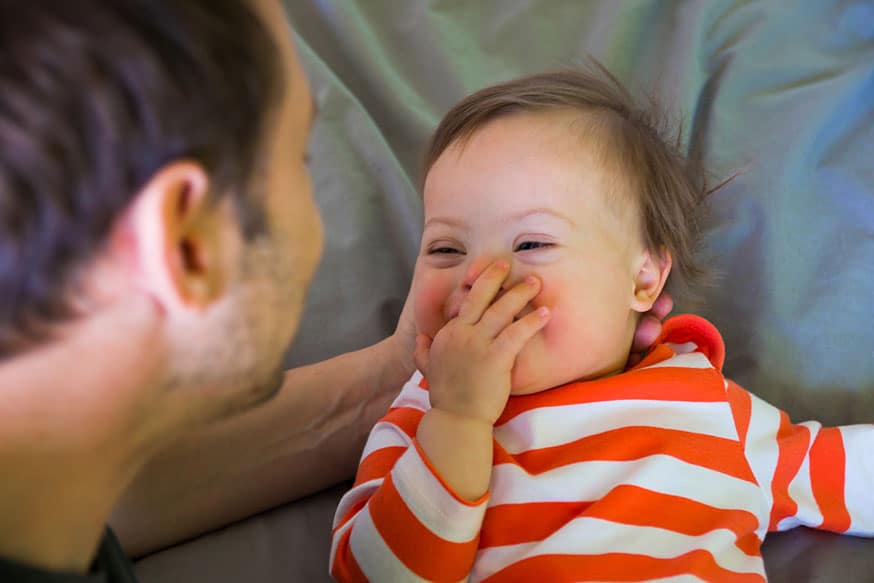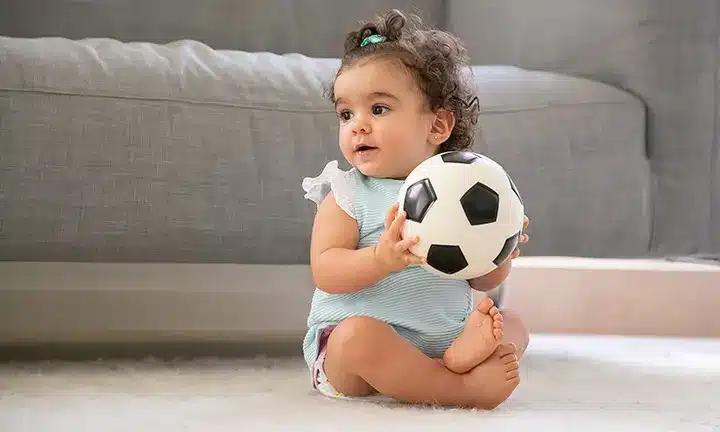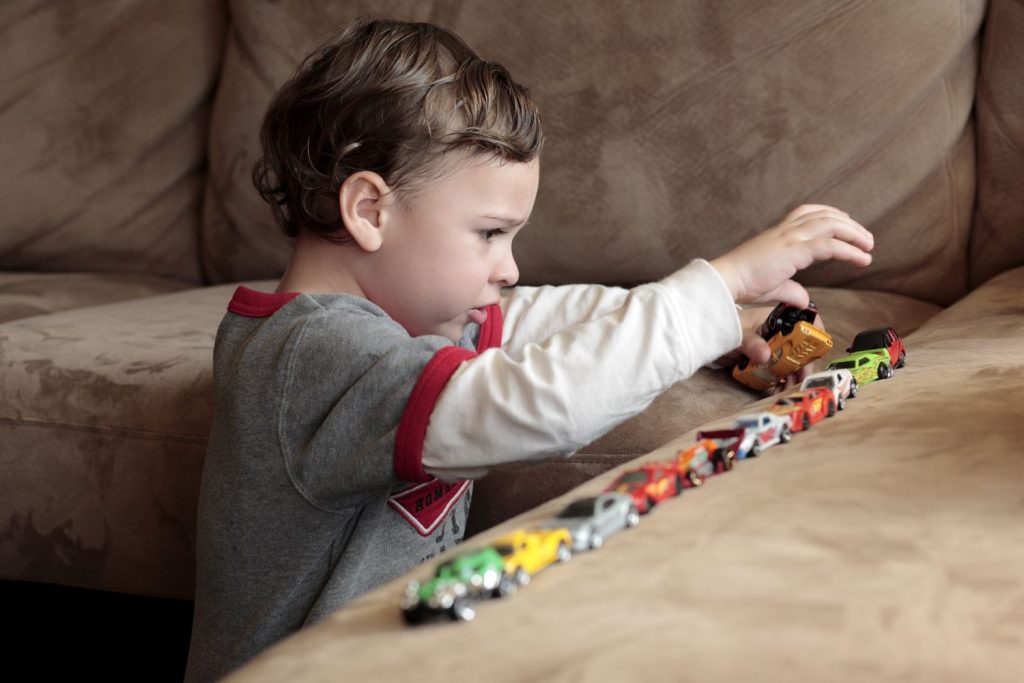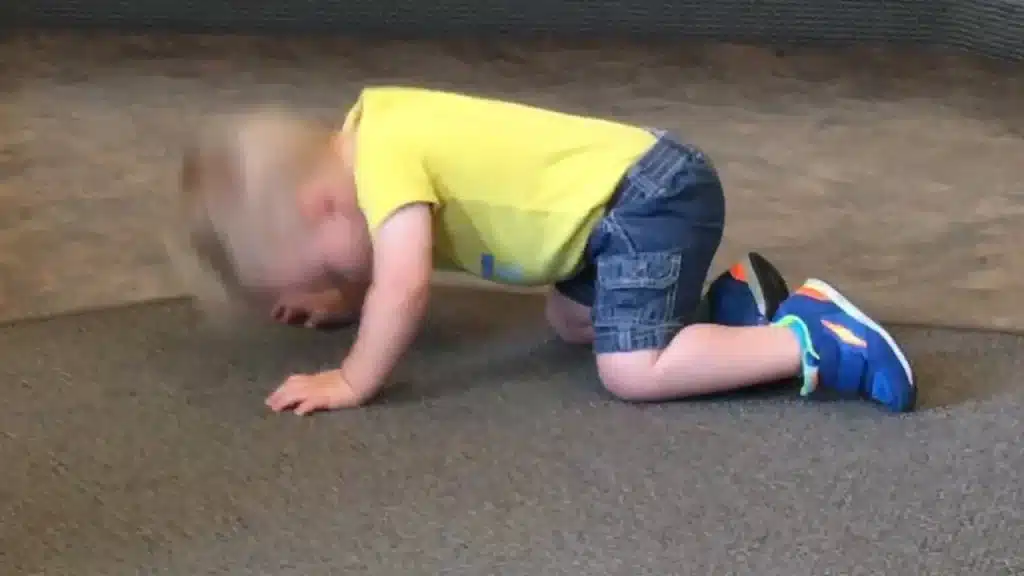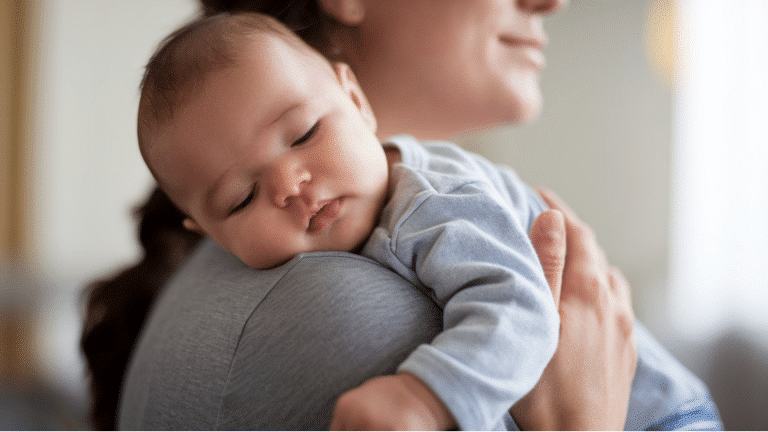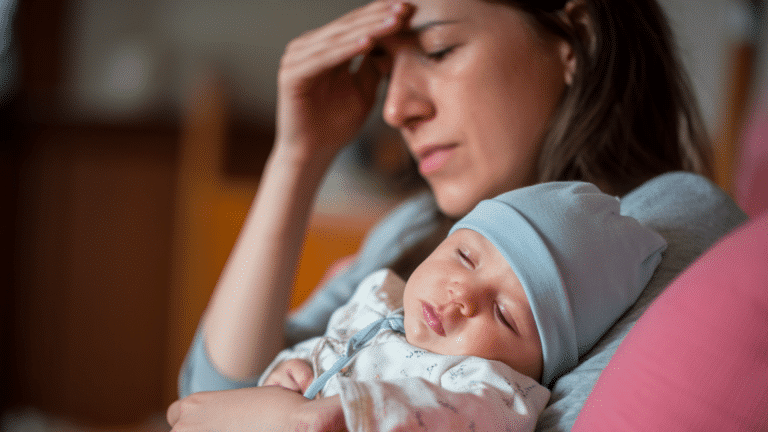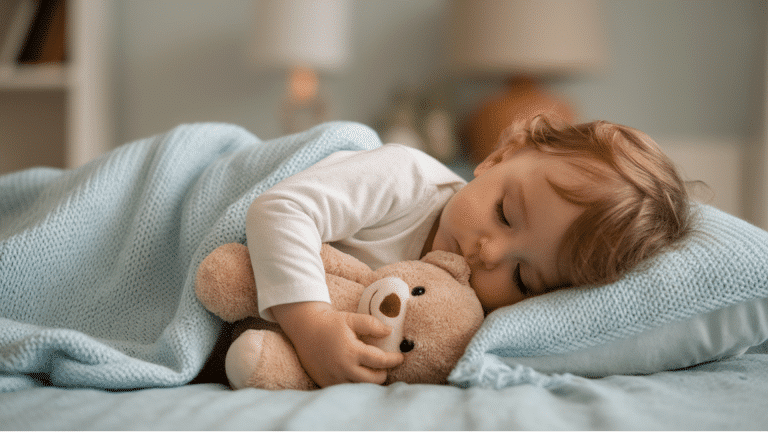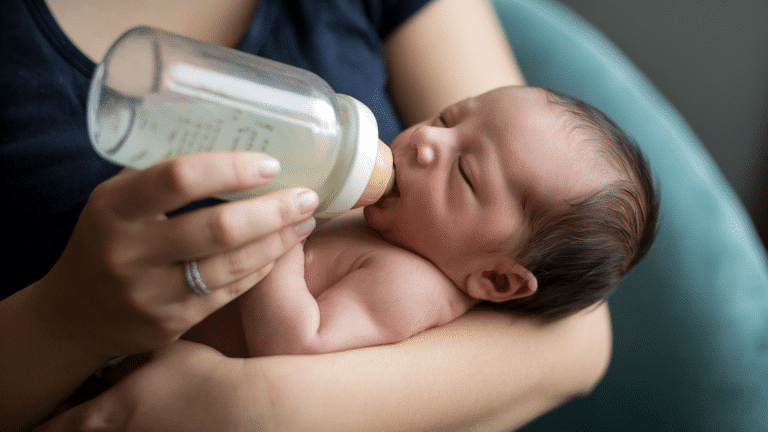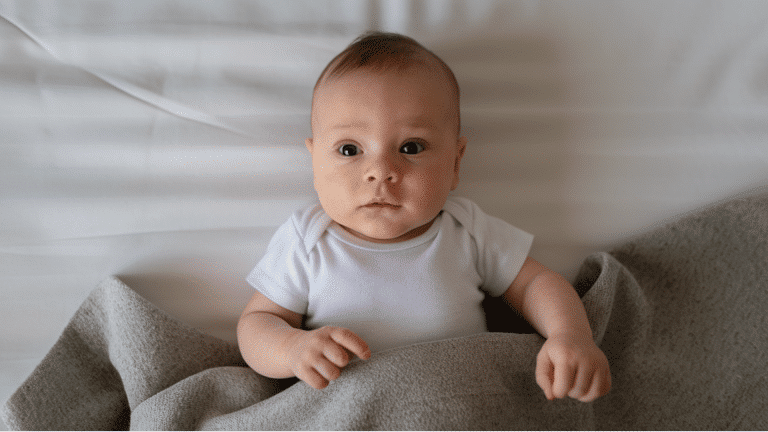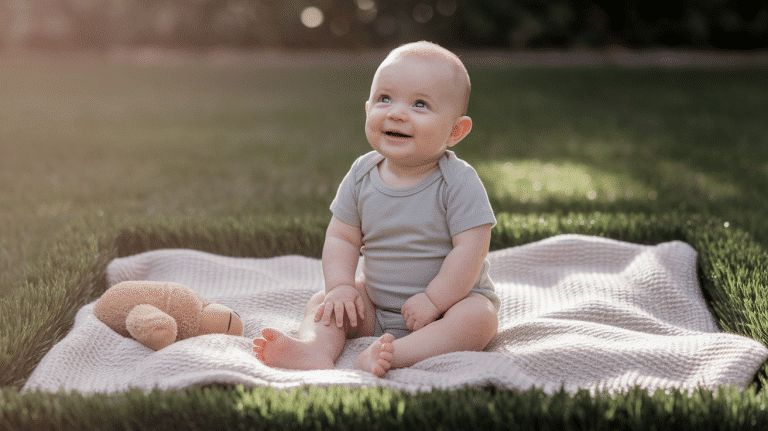The first grin, the first time your baby chews his finger, the first time they raise their leg, and even the sweet sound of blowing raspberries are all developmental milestones that occur throughout your baby’s first year. However, if you notice your child shaking their head side by side, you can get concerned. You could think he is too young to shake his head.
Babies occasionally exhibit behaviors that make parents question if they are typical. Your initial reaction could be fear if you see that your youngster is shaking their head more than you would like them to do. That feeling when your infant does something that appears a little out of the ordinary is completely natural.
Learn the causes of your baby’s head shaking and the situations that warrant your concern.
Normal Conditions of Shaking of Baby’s Head
If you are worrying about why your newborn is shaking their head side by side, then there might be chances that this is normal. If your infant appears content and Healthy, head shaking is probably nothing to be concerned about.
To come up with potential answers, it’s crucial to take into account the precise context and characteristics of the head shaking. In other instances, children’s head shaking is just a typical stage of growth. Infants and early children may make repetitive motions, such as shaking their heads, to investigate their environment or relax. Children’s head shaking can have a variety of causes and symptoms.
Here are a few typical explanations of your baby’s head-shaking behavior.
1. Improving Motor Skills
Your baby’s neck muscles are put to the test when they can hold up and move the head after they have fully formed. It is a typical milestone in development. A newborn usually begins to turn their head from side to side by the end of the first one. By the age of two months, infants can raise their heads while lying on their tummies, according to the Centers for disease control and Prevention.
2. Self-Soothing
An infant suits themselves by shaking their heads side to side. It could be a healthy coping mechanism to help them relax and fall asleep. Just before your child nods off, you can observe this behavior.
3. During Breastfeeding
Babies may move their heads to latch when nursing. One of the baby’s initial head motions may be this one. In addition to breastfeeding, they could shake their heads to show enthusiasm. You should support your baby’s head when feeding until they are three months old, even if they may support and move their head side to side.
4. Interaction and Communication
In the first few months, babies begin to move their heads as a part of social engagement. When you’re in front of is enthusiastic, you can observe an increase in head shaking. A newborn may shake its head to communicate non-verbally. As the infant gets older, they could also start producing sounds to indicate their feelings and shaking their heads as a reflex.
How to Identify Uncommon Head-Shaking Behavior in a Child
Apart from some common reasons, some reasons might need to be identified. These reasons might be uncommon and should be treated on time to avoid any further problems in the upcoming future.
1. Aches or An Ear Infection
When they are in discomfort, some newborns will shake their heads to calm themselves. An ear infection may be the cause of sudden head shaking, especially if the infant is feverish or clutches at their ears. Doctors may recommend antibiotics to treat ear infections.
2. Epilepsy
Babies and certain epileptics have myoclonic jokes. These are relatively brief seizures that result in abrupt muscular spasms. Myoclonic jokes can affect any portion of the body, although some infants may move their heads or neck as a result. Parents or other carers may not first recognize the jokes as seizures since they are so brief.
3. Autism
People with developmental disabilities who struggle with social contact, communication, or repetitive behavior tend to shake their heads involuntarily. With this disease, frequent headbanging has occasionally been noticed. In such situations, look out for these related behavioral characteristics.
4. Psychiatric Disorder
When a baby’s head shaking appears uncontrollable, or when they exhibit other strange motions or behaviors, it may be a symptom of a neurological issue. For instance, rhombencephalon synapsis, A disease, results in variation in cerebrum development. Babies with neurological problems may struggle with speech, mobility, and other age-appropriate behaviors as well as developmental milestones
5. Tic Disorders
Tick disorders, like Tourette syndrome, can induce head shaking and involuntary movements or vocalizations. Most of the time, please text repeats itself throughout time. Speaking with a healthcare expert for a complete assessment and recommendations if you suspect a tech issue is crucial.
6. Anxiety or Stress
Children who are experiencing stress, worry, or emotional anguish may shake their heads. This behavior could appear as a nervous tick or a means to comfort oneself. The child’s general mental health, as well as possible stresses in their environment, must be taken into account.
Results of Uncommon Headshaking in Babies
These might be the results if your child is continuously shaking their head:
1. Absence of Social Contact
Babies that don’t engage with their parents or siblings much don’t respond to their name or other noises, have an odd look, and don’t show any interest in or reaction to smiles may need medical attention.
2. Ineffective Communication Signals
Locate in excellent health and will communicate with hands-on motions and movements. Most 7-8-month-old newborns use both pointing and noises to communicate. Babies that have autism will have poor quality and be unable to utilize gestures effectively.
3. Loss of Important Skills
As they grow, autistic babies will have weak language and understanding abilities. Less eye contact and social interaction are signs of this person.
4. Repeated Actions and Behavior
Babies with autism may exhibit repetitive and odd behaviors without indicating that they are learning new things. The presence of such symptoms in your newborn should raise some red flags.
5. Headbanging
You should be concerned if your child continues to smash his head against the wall, his cot, or even the wall with his fists despite having bruises. When feeling anxious, he could even shake his head erratically or repeatedly for a while.
When to Consult a Doctor?
It is crucial to follow your gut and seek medical help if your child is shaking their head and you are worried about it. While a child’s occasional head shaking may be natural, there are several circumstances where seeing a doctor is necessary. It is usually preferable to err on the side of caution and make an appointment if you are unsure whether to see a doctor or not. A medical expert will be able to evaluate your child’s particular circumstances, conduct a complete assessment, and offer the necessary advice and suggestions.
Here are the key things to consider to call for an expert:
1. Frequency or Duration
It is advised to see a doctor if the head shaking occurs often during the day or last for a long time. Head shaking that occurs occasionally or briefly is less alarming, but if it develops into a habit, it might point to a deeper problem.
2. Developmental Issues
It is critical to get medical help if the head shaking is accompanied by other developmental delays or regression in milestones, such as speech, motor abilities, or social interactions.
3. Uncontrollable or Involuntary Shaking
If your child’s head shaking looks to be involuntary, or if they are unable to stop it, it may indicate a neurological problem or tic condition.
4. Other Symptoms
Pay attention to any additional symptoms your kid may be having, such as headaches, vertigo, balance issues, weakness, or behavioral changes. These extra signs and symptoms may offer crucial hints about the underlying problem.
5. Changes in Emotions and Behavior
If emotional or behavioral changes accompany the head shaking, it may be a sign of worry or emotional discomfort.
6. Genetic Problems
Suppose neurological diseases, movement disorders, or tic disorders run in your family. In that case, it’s important to be watchful and see a doctor right once you detect any strange movements in your child.
7. Sensory Difficulties or Autism Spectrum Disorder Worries
It is recommended to talk to a healthcare provider about your concerns if you think the head shaking could be connected to sensory-seeking behavior or could be an indication of autism spectrum disorder (ASD).
Possible Medications for Head Shaking Child Behavior
It is advised to consult a pediatrician or other healthcare professional as soon as you can if you have any worries about your baby’s head shaking or if you see any other worrying signs or behaviors. Baby’s typical development behaviors, sensory seeking behaviors, Pics, neurological disorders, and other factors are some possible regions of head shaking.
Treatment choices might be:
1. Observations
According to observation, baby head shaking can occasionally be a natural stage Of growth and may go away on its time. The doctor may advise surveillance and behavior monitoring in such circumstances.
2. Behavior Modification and Treatment
Occupational therapy and behavior modification techniques may be advised for some infants who shake their heads due to sensory-seeking behaviors or developmental problems.
3. Medications
The doctor may prescribe specific drugs if the head shaking is linked to a recognized medical disease, such as a tic disorder or neurological problem. A skilled healthcare expert would select and administer these drugs based on the baby’s age, weight, medical history, and other criteria.
4. Taking Care of Underlying Medical Conditions
An ear infection or other health disorders may occasionally be the cause of the head shaking. The head shaking could stop if the underlying condition is addressed.
Conclusion
In conclusion, parents and other carers may become concerned when a baby’s head shakes. Although head shaking is frequently a typical aspect of a child’s growth and exploration of their involvement, it is crucial to address this behavior from a balanced viewpoint. Babies frequently outgrow these behaviors on their own as they mature and develop. On the other hand, chronic or regular head shaking requires prompt medical treatment, particularly when other alarming symptoms or developmental abnormalities accompany it.
It is critical not to ignore any symptoms that might point to a neurological problem or underlying medical condition. Keep in mind that each child is different, and the causes of head shaking might vary widely.
Some infants may shake their heads as part of their developmental exploration, while others may do so in response to sensory stimulation or emotional discomfort.
Frequently Asked Questions
Is My Baby’s Treatment Headshaking Normal?
Yes, it is frequently perfectly natural for newborns to shake their heads. Babies utilize shaking their heads as a technique to investigate their environment and interact with their senses in the early stages of their development. This behavior frequently declines and finally stops as kids become older and become more proficient at communicating their feelings.
What Are Some Typical Causes of a Baby’s Head Shaking?
Babies shake their heads for a variety of reasons. Typical developmental exploration, sensory seeking to enhance their senses, self-soothing behavior, or just reacting to excitement or curiosity are a few frequent explanations. However, it is crucial to seek medical help if the head shaking is continuous, uncontrollable, or accompanied by other alarming symptoms.
Can a Baby’s Head Shake from Teething?
Baby’s head shaking is not often brought on by teething. However, as newborns try to soothe themselves or relieve their discomfort, teething discomfort can cause greater movements, including head shaking.
Should I Be Concerned About My Baby’s Head Pounding When They Sleep?
Head pounding when sleeping is rather uncommon and frequently unharmful. Babies frequently use rhythmic motions to calm themselves and fall asleep. To rule out any underlying conditions, it is crucial to see a doctor if head banging is forceful, followed by an injury, or happens during waking hours.

